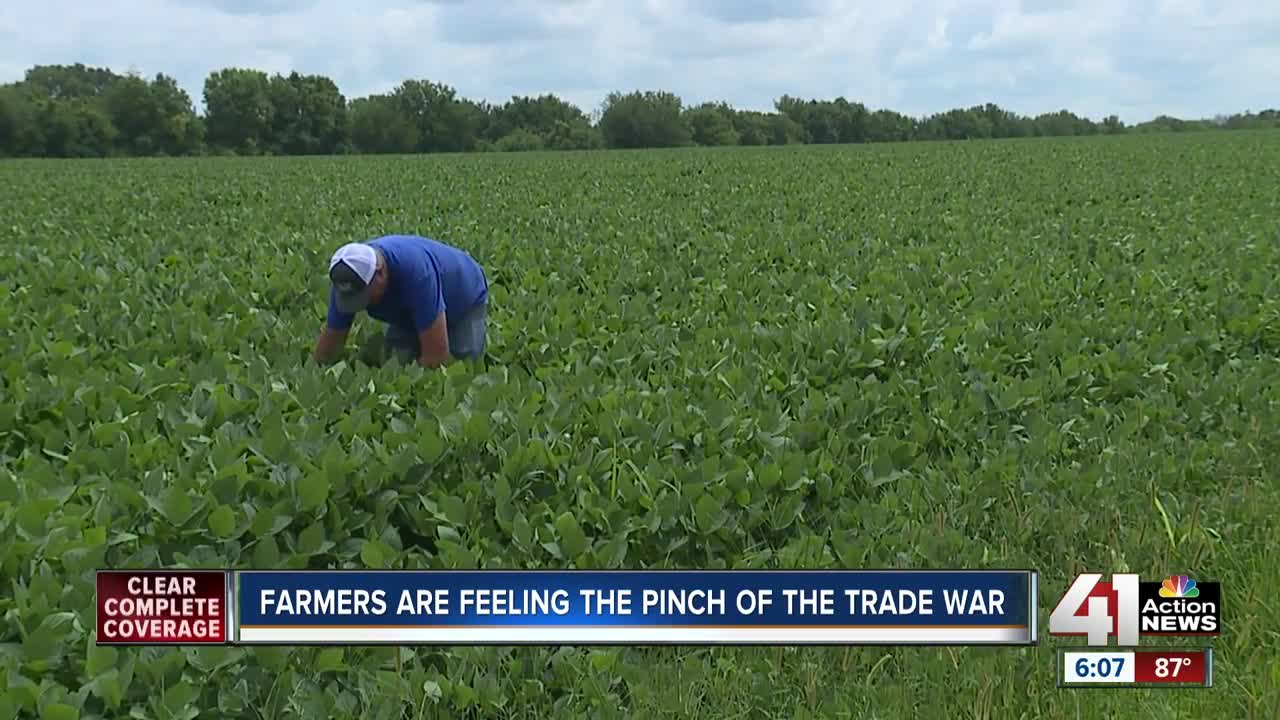HARRISONVILLE, Mo. — Farmers are losing their fourth-largest customer as China officially stops buying U.S. agricultural products.
Mike Moreland is a third-generation farmer in Harrisonville, Missouri. He grows soy beans, corn and raises cattle.
"It's like working your 40 hours and getting less money for no other reason than that's the price," said Moreland.
This week, China officially pulled out of buying U.S. agricultural products. The loss piles onto an already tough year for crops and commodity prices.
"Weather's the main thing, you know, with so much rain early in the season, it was very tough to get all of our corn planted and we did get all of our corn planted but it was about a month late," said Moreland.
China made up $5.9 billion in U.S. farm product exports in 2018, according to the U.S. Census. It's the world's top buyer of soy beans, and purchased roughly 60 percent of U.S. soy bean exports last year.
Since the trade war started last year, prices have dropped and Moreland said he is seeing the impact first hand.
"You can never guarantee what you're going to get from your crop, because it's a commodity," Moreland said. "It's price goes up and down. It's traded every day. But as a whole, yes, we got less for our soy beans last year than we did the year before."
Moreland said he's feeling the pinch from the trade war, but not as much as other farmers.
"There are farmers that maybe had a lot more debt than we do that are feeling it much harder than we are," he said. "We're pretty secure in our farm business, but there's a lot of farmers out there that had more debt and this hit them hard."
With 700 acres of corn and 700 acres of soy beans, Moreland said he's staying afloat by budgeting his spending. He also hopes the U.S. and China can come to a fair trade agreement.
"I really appreciate the objective of getting fair trade," Moreland said. "We want trade. We want to trade with other countries. We need trade. And I think, once we get this worked through, we'll get back to good relationships, and we'll be selling a lot of products to China and other countries even."
Lucas Heinen has been growing soy beans, corn and wheat since 2004 in Everest, Kansas said he doesn't believe China's announcement will impact his farm.
"Other than the psychological effect of dealing with continued market uncertainty, I do not think that the recent announcement by China will have much of an impact on my farm at this point," he said. "Most of the financial damage has been done."
Heinen said Market Facilitation Program payments have helped cushion the blow.
"I have made adjustments to my operation to deal with the lower soybean prices," he said.
While the uncertainty of a trade agreement remains, Heinen said he wants to see the Trump administration continue to push for a fair trade agreement.
"I would like to see the Trump administration continue to press China to make the necessary concessions and get an agreement in place," he said. "I believe that the Chinese government's ban on importing U.S. agricultural products and devaluation of their currency shows the tariffs are working. Progress is being made and we need to stick it out.
"Communist regimes will not make structural change unless forced to do so. China needs to be brought to heel on their one-sided trading practices, intellectual property theft, and other market manipulation techniques. I want to continue to have China as a market for my agricultural crops, but not so much that I will overlook the fact that they are taking advantage of industries in the U.S."





